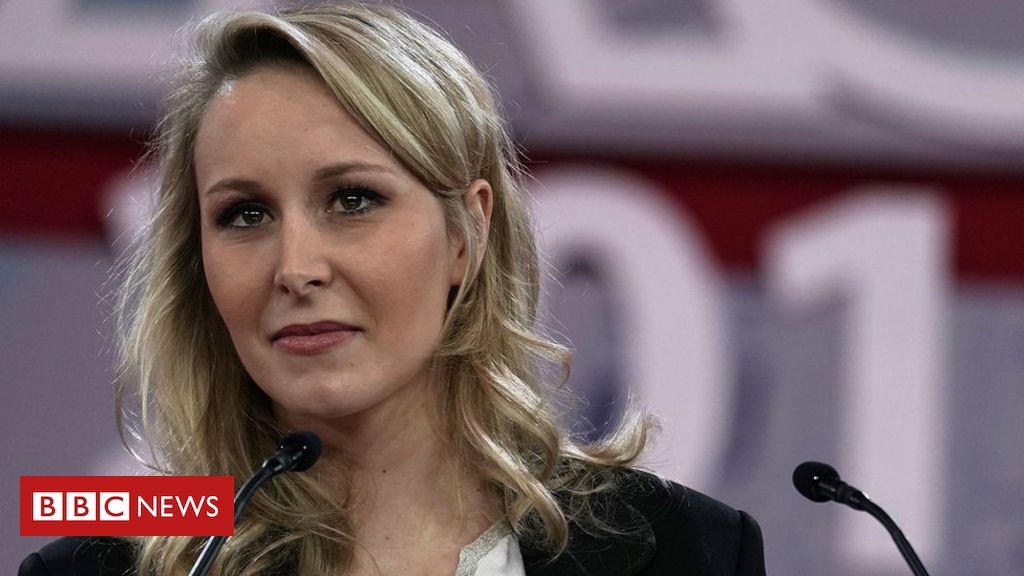Blog Post
Marion Maréchal: How Europe’s rising conservative star sees the post-modern West
By Jonathon Van Maren
On February 22, 2018, 28-year-old Marion Maréchal took the stage at the Conservative Political Action Conference (CPAC) in Washington, D.C. The niece of National Front party leader Marine Le Pen, one of France’s most infamous politicians, her appearance was not without controversy. Nevertheless, her speech touched on unique and important themes that rarely surface at American political conferences: surrogacy (she decried the idea that we have the right to “rent a woman’s womb”), dehumanizing economic models (that create “slaves in developing nations and unemployed in Western countries”), and Islamization (she noted that “France is in the process of passing from the eldest daughter of the Catholic Church to the little niece of Islam”). The crowd loved it.
Michael Dougherty in National Review observed that hers was “the speech of a modern right-wing French Catholic,” in marked contrast to Marine Le Pen’s “French secularism and statism.” Rod Dreher also penned an appreciative review, referring to her “dynamic speech.” In February 2020, Maréchal was one of the featured speakers—alongside Dreher, Hungarian Prime Minister Viktor Orbán, British commentator Douglas Murray, among others—at the second ‘National Conservatism’ conference in Rome, organized by Yoram Hazony’s Edmund Burke Foundation. (The first conference, which I attended, was held in Washington, D.C. in July 2019.)
Maréchal’s speech in Rome was again very well-received, with Dreher calling it “marvelous” and Titus Techera noting that “the most beautiful speech of the day was given by the most beautiful speaker, the young and lovely Marion Maréchal, the queen in waiting of the French right.” Only Douglas Murray was somewhat reserved, noting that Maréchal’s “family politics remain ugly and sinister to me.”
Maréchal’s family politics are where the controversy arises. Her grandfather, Jean-Marie Le Pen, is the founder of France’s National Front but was ejected from the party by his own daughter, Marine, in 2015. She has since attempted to move the party into the mainstream by purging it of its more extreme members—those accused of anti-Semitism, racism, and Pétainism—and changing its name to Rassemblement National. For Marine Le Pen, this “de-demonization” of the party has also included embracing abortion on demand and government recognition of same-sex unions, as well as denouncing corporate power and globalization to appeal to populists of all stripes. (Her niece, on the other hand, has vowed in the past to defund Planned Parenthood.)

Marion Maréchal was first elected to the French National Assembly in 2012 at the age of 22 as the member for Vaucluse’s 3rd constituency. She was one of the youngest parliamentarians in modern French political history and soon began to be seen as the rising star of the French right. Many see her as a far more interesting politician than her aunt, especially—as Pascal-Emmanuel Gobry put it—because “the Marion line” often runs contrary to the secularism of Le Pen and “against every sacred cow of French politics.”
But Maréchal disappointed many in 2017 by deciding not to seek re-election and resigning her position as regional councillor, stating that she wished to spend more time with her family. (Her marriage to businessman Matthieu Decosse, which lasted two years, produced a daughter, who was then three years old.) But Maréchal’s resignation from politics has not slowed her down. That same year, she helped found L’Incorrect, a conservative magazine that serves as an outlet for many of her idea. In May 2018 she launched a private school, the Institut de Sciences Sociales, Économiques et Politiques in Lyon.
When in 2018, she formally dropped the surname ‘Le Pen’—which she had inherited from her mother Yann, one of Jean-Marie’s three daughters—the move was widely seen as preparation for a possible presidential run in 2022. Although she has insisted that she is not ashamed of her maternal family name, Maréchal is the name she received from her adoptive father Samuel.
Her biological father, Roger Auque, who passed away in 2014, was a well-known journalist, diplomat, war correspondent, and Israeli spy. Maréchal’s paternity only came to light rather recently, and in 2013 Maréchal successfully sued L’Express newspaper for invasion of privacy for publishing these facts about her father, winning £7,200 in damages. (Interestingly, her personal history has contributed to her pro-life convictions: in 2016, while opposing a law that would censor pro-life websites, she noted that “I am myself an accident.”)
Maréchal is, in short, one of the most interesting people on the political scene today. And as speculation about an eventual political challenge to Macron rises, and she increasingly appears at major conservative conferences around the world to articulate “the Marion line,” I myself have become more interested in finding out what she believes and exploring her views in-depth. So, I requested an interview—and Maréchal kindly agreed.
READ THE REST OF THIS COLUMN AT THE EUROPEAN CONSERVATIVE








